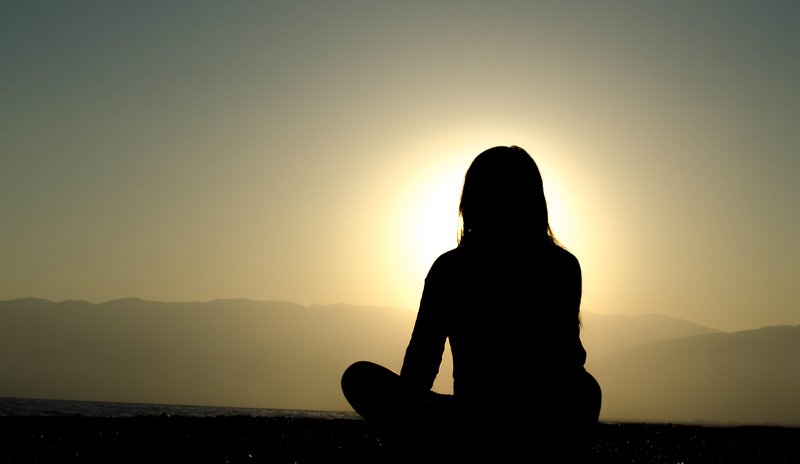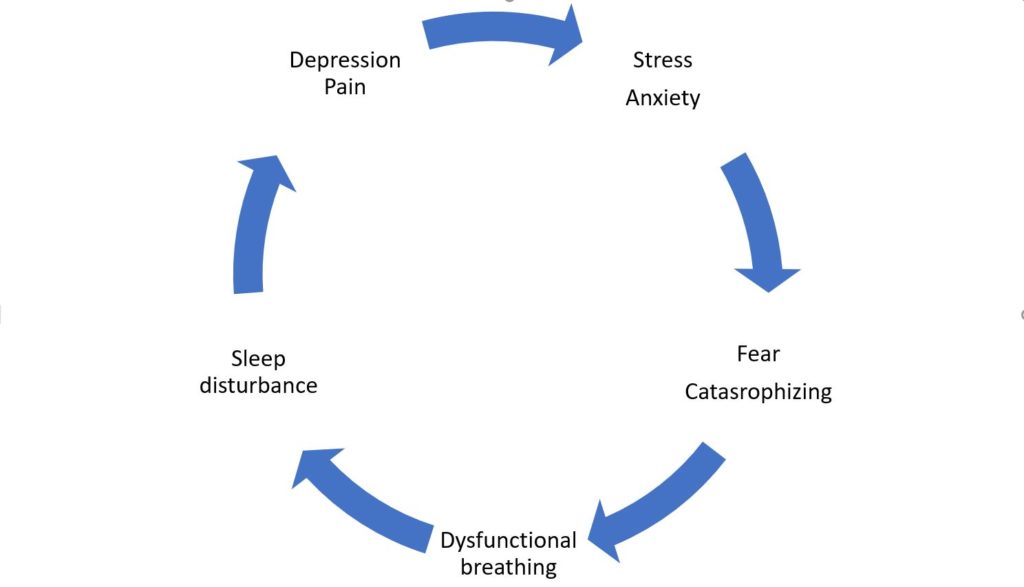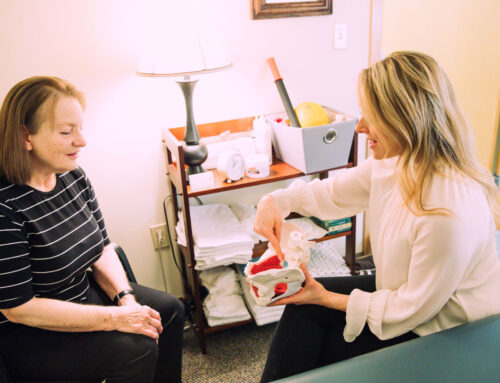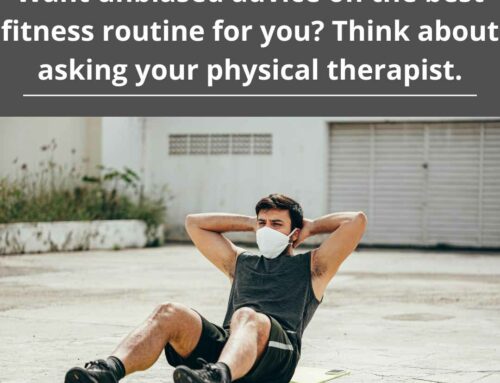Is COVID-19 Stressing You Out?

By Kari Osborne DPT
As a physical therapist I am used to treating pain. Pain is often viewed as a physical response to injury, but it is very emotional as well. We can feel emotional pain from harm, change, and loss just to name a few. Many of us are experiencing emotional pain due to these and other reasons right now, and just like physical pain, unless it is managed, can turn into a cycle which is difficult to break.
We have all been impacted by COVID19 in one way or another. Whether it is those working on the frontlines in essential industry, those managing working and schooling kids from home, or those who have lost their jobs. Not only have we experienced change in our work lives, but we have experienced substantial change in our social lives as well. We are social beings not meant to live in solitary which many of us have been asked to do. Before COVID even ramped up here in America feelings of loneliness were on the rise. A report released by Cigna in early 2020 showed greater than 60% of Americans feel lonely, a 13% increase from 2018. Loneliness can have significant effects on our health and has been linked to depression, heart disease, and has even been shown to impact our immune system. It is important that we carefully assess our mental health, and those around us, to help recognize changes that may need addressing.
Below is a picture depicting the pain cycle. Now I don’t know about you, but I can recognize a few of those descriptors in my current life, fear of the unknown and anxiety just to name a few, so how do we break the cycle and move forward?

The first step is recognizing what is going on. Below is a list of symptoms associated with depression (see Table 1). Now there are many different types of depression some more severe than others but what I want to focus on is situational depression. Situational depression is typically short-term and brought on by traumatic or life changing events (ring any bells for you?). Oftentimes, as is our current state, there is not much you can do to change the traumatic event or life change. There are however things you can do to help combat the symptoms and break the cycle.
Table 1
| Symptoms of Situational Depression | |
| Sadness | Hopelessness |
| Lack of enjoyment in activities | Regular crying |
| Constant worrying/anxiousness | Difficulty sleeping |
| Difficulty focusing | Trouble carrying out daily activities |
| Avoiding social interaction | Thoughts or attempts at suicide |
One of the best things you can do to break the cycle is to increase your activity level. Research has shown that exercise reduces the risk of cardiovascular disease, stroke, and boosts our self-esteem. Research also shows a strong link between exercise and the reduction of stress and depression symptoms. Physical activity increases natural endorphins that make us feel good and boosts our mood. It also increases blood flow which has been shown to increase nerve cell connections in our brain and help us think more clearly. Although it may feel challenging at times it is important that we get up and move. It is recommended that we exercise for 30 minutes a day, but this can be broken up into smaller 10-minute intervals if needed. When combined with Vitamin D (aka sunshine) another natural depression fighter, the results can be exponential. I have found that on days I exercise I feel more motivated, accomplished, and sleep substantially better than days I do not, especially when done outside. If you are worried about managing your kids while trying to exercise get them involved by having them hunt for items while on walks or participate in an online workout with you. If there is an injury or physical ailment holding you back don’t hesitate to contact us as we are happy to help you get back up and moving.
Another way to combat feelings of depression and anxiety is to connect with others. Social connectedness has been shown to improve self-esteem, increase empathy, and even improve our immune system. In a society built on independence and self-reliance it is easy to fall into the idea that we are weak if we ask or help or rely on others, but this is necessary to our genetic make-up. We thrive on social interaction, whether you are introverted like myself and enjoy one-on-one conversations, or whether you are extroverted and love large gatherings. Make it a priority to find someone to connect with and be open with them. If social connectedness is not something you struggle with, make an effort to reach out to those who may have more difficulty than you. You will likely feel an emotional boost through your ability to help someone else.
Here are some other ways to help break the cycle of depression
- Prayer/Meditation
- Gardening
- Serving others
- Watch or listen to comedy
- Listen to uplifting music
- Healthy diet
If you have tried many of these suggestions and still find that you are struggling please reach out to your doctor or care giver. I am no stranger to depression as it has a long history in my family and unfortunately has led to losing loved ones. I myself have fought with anxiety disorder and have required treatment at times to help manage those symptoms. There is nothing to be ashamed about and I strongly encourage you to seek medical help if you are unable to manage your symptoms independently.
We at Flex are thinking of you and wish you all the mental health and physical wellness as we continue through this challenging season.






